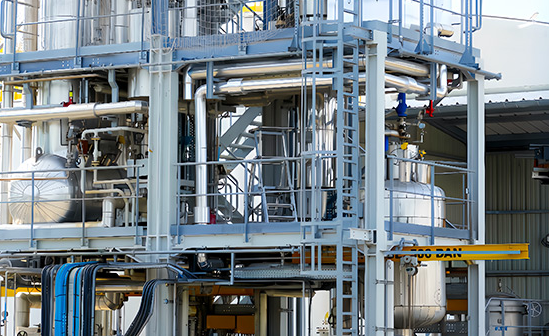Why Is Dipicolinic Acid Important to Us?
Have You Ever Considered the Impact of Dipicolinic Acid?
It may surprise you to learn that Dipicolinic Acid (DPA) holds a pivotal position in multiple industries, spanning from pharmaceuticals to agriculture. This compound, while seemingly straightforward, is far more than just another chemical; it functions as a fundamental component that supports essential processes and products upon which we depend every day. Gaining a deeper understanding of DPA’s applications can truly highlight its significance in contemporary science and industry.

An Overview of Dipicolinic Acid
Dipicolinic Acid, which is scientifically termed pyridine-2,6-dicarboxylic acid, possesses the molecular formula C7H5NO4. It manifests as a colorless solid powder that is soluble in both water and a variety of organic solvents. While this compound is found in nature—primarily within bacterial spores—the concentrations available are insufficient to satisfy industrial requirements. Consequently, the synthetic production of DPA has become imperative. The initial breakthroughs in artificial synthesis occurred in 1935, laying the groundwork for subsequent developments; however, modern advancements in production methodologies have led to processes yielding much higher quantities of this vital compound.
Applications of Dipicolinic Acid
1. Intermediates in the Synthesis of Pyridine Products
Converting Raw Materials into Crucial Chemicals
Dipicolinic Acid acts as a critical intermediary in the synthesis of a multitude of pyridine derivatives, which are essential for the production of various chemicals, pharmaceuticals, and agrochemicals. For instance, substances such as 2,6-diacetylpyridine and 2,6-diamino-4-chloropyridine are synthesized using DPA as an essential building block. These compounds are fundamental in the manufacture of flavoring agents, solvents, and medicinal products, thereby demonstrating DPA’s remarkable versatility within industrial applications.
Broadening the Chemical Arsenal
The range of pyridine derivatives that utilize DPA encompasses an extensive array of complex molecules, including (6-methoxyformylamino-4-chloropyridine-2-yl) methyl carbamate and 6-aminomethyl pyridine-2-carboxylic acid. These compounds find utility across various sectors, notably in agrochemicals and dyes, which underscores DPA’s essential contribution to advancing chemical synthesis.
Improving Production Efficiency
Through innovative production techniques, suppliers such as UniVOOK Chemical have significantly increased the yield of DPA to approximately 98%. This enhancement not only fulfills rising industrial demands but also effectively reduces costs and resource utilization, thereby making the synthesis of pyridine derivatives more efficient and environmentally sustainable.
2. Pharmaceutical Applications
A Fundamental Element in Drug Development
Within the realm of pharmaceuticals, Dipicolinic Acid is employed as an intermediate for synthesizing numerous active pharmaceutical ingredients (APIs). The importance of its role as a building block in drug formulations cannot be overstated, as compounds derived from DPA are critical to developing medications that address a variety of health issues, including infections and chronic illnesses.
Fostering Research and Innovation
Scientists are perpetually investigating new methodologies to harness DPA for creating innovative therapeutics. Its distinctive chemical characteristics enable it to engage in various biochemical pathways, making it a promising candidate for the development of new pharmaceuticals. Consequently, the pharmaceutical sector regards DPA not merely as a chemical compound but as a vital contributor to advancements in medical science.
Ensuring Quality and Safety in Pharmaceuticals
Given the crucial role that Dipicolinic Acid plays in drug manufacturing, the emphasis on its quality is paramount. UniVOOK Chemical guarantees that its DPA adheres to rigorous purity standards, achieving levels of 99.0-99.5%. Such high purity is essential for pharmaceutical applications, as the presence of impurities can significantly compromise drug efficacy and safety.
3. Inhibitors in Biochemical Processes
Effective Competitive Inhibition
Dipicolinic Acid is also acknowledged for its function as a competitive inhibitor of glucose dehydrogenase, a key enzyme involved in glucose metabolism. By inhibiting this enzyme, DPA significantly contributes to the regulation of metabolic processes, rendering it a valuable tool in biochemical research and potential therapeutic applications.

Repercussions for Disease Management
The capacity to modulate enzyme activity via DPA positions it as a promising candidate for managing conditions related to glucose metabolism, including diabetes. Researchers are actively exploring how DPA can be utilized in developing new treatments aimed at enhancing metabolic regulation.
Deepening Biochemical Insight
The application of DPA as an inhibitor also facilitates a more profound understanding of enzyme kinetics and metabolic pathways. Such research is critical for the progression of biochemical science, opening avenues for groundbreaking discoveries in medicine and health.
The Role of Dipicolinic Acid in the Feed Industry
1. Advancing Animal Nutrition
An Indispensable Additive for Livestock
Within the feed industry, Dipicolinic Acid is increasingly acknowledged as a valuable additive. Its capacity to enhance the nutritional quality of animal feed can lead to improved growth rates and overall health in livestock. By integrating DPA into animal diets, farmers are able to optimize feed efficiency and foster healthier livestock.
Supporting Animal Well-Being
DPA’s unique properties can promote the proliferation of beneficial gut bacteria, which are crucial for maintaining the overall health of animals. A thriving gut flora can enhance nutrient absorption, resulting in better growth performance and a reduced reliance on antibiotics, which is particularly significant in contemporary agricultural practices.
Compliance with Regulatory Standards
As the demand for safe and nutritious animal feed escalates, the incorporation of high-quality ingredients like DPA becomes increasingly vital. UniVOOK Chemical’s feed-grade DPA, characterized by its low impurity levels, adheres to the stringent regulatory standards mandated in the feed industry, ensuring that livestock are provided with optimal nutrition.
2. Tackling Industry Challenges
Addressing Feed Efficiency Concerns
The feed industry faces a multitude of challenges, including escalating costs and the necessity for sustainable practices. Dipicolinic Acid can play a crucial role in addressing these challenges by enhancing feed efficiency and minimizing waste. By optimizing animal growth and health, DPA contributes to creating a more sustainable livestock production system.
Innovative Approaches for Modern Agriculture
Farmers are in constant pursuit of innovative strategies to boost productivity while minimizing environmental impact. Dipicolinic Acid’s involvement in animal nutrition serves as one such solution, providing a pathway to achieve better yields without sacrificing quality.
Opportunities for Research and Development
The feed sector is primed for innovation, and ongoing research into DPA’s applications continues to expand. By investing in studies that explore novel uses of DPA in animal nutrition, stakeholders can further advance livestock production while ensuring compliance with evolving industry standards.
The Future of Dipicolinic Acid
1. A Promising Horizon for DPA Applications
The remarkable versatility of Dipicolinic Acid ensures its sustained relevance across diverse sectors, including pharmaceuticals, agriculture, and biochemical research. As industries progress and new challenges arise, DPA is well-positioned to play an increasingly significant role in delivering solutions.
2. A Commitment to Quality and Sustainability
Suppliers such as UniVOOK Chemical are committed to producing high-quality DPA that meets the rigorous requirements of various industries. With a focus on both purity and sustainability, they contribute to a healthier future for consumers and the planet alike.

3. Embracing Innovation
The future of Dipicolinic Acid is inherently tied to the innovative applications currently under exploration. As researchers and industries continue to unveil its potential, DPA is destined to remain a foundational element in the development of new technologies and products that enhance our lives.
Conclusion
In summary, Dipicolinic Acid transcends its identity as a mere chemical compound; it emerges as a crucial player in the contemporary industrial landscape, providing solutions that fulfill the diverse needs of various sectors while paving the way for future advancements.
Access Our Product Catalog and More to Discover High-Performance Chemicals Tailored to Your Business Needs




